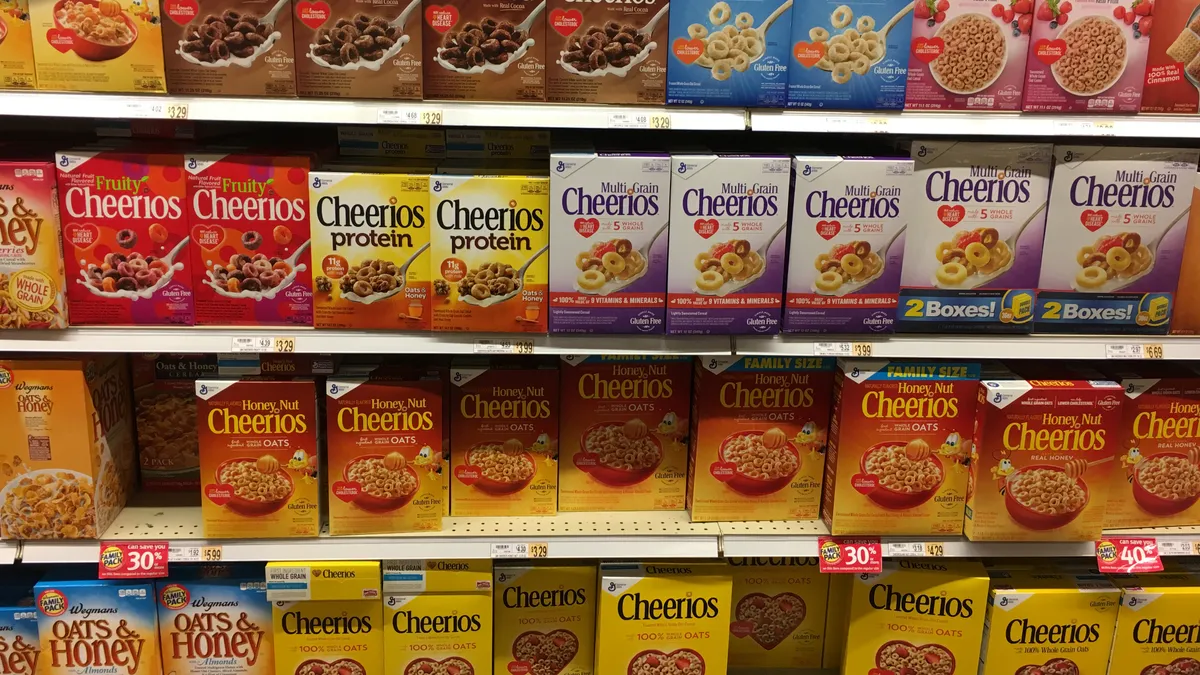For Kofi Bruce, who became CFO of General Mills shortly before the killing of Floyd George in the company's hometown of Minneapolis, environmental, social and governance (ESG) focus is more than an abstract goal. It is part of a numbers-driven plan to weave ESG values throughout the 93-year-old company.
He joined the corporation, which owns Yoplait, Cheerios, Pillsbury, Haagen-Dazs and many other brands, as treasurer in 2009, ascending through various financial leadership roles, before being named outgoing CFO Don Mulligan's replacement in August 2019. His first year as finance chief has been both challenging and illuminating, he told British publication Financial Director in an interview last week.
About one in 10 General Mills employees works at in Minneapolis, the city where Floyd died last May. The proximity to the event "brought a lot of questions about America's long and troubled history with race," Bruce said.
Two days after the event, the company shared its commitment to equality on its website: "The killing of George Floyd in our hometown is only one piece of the much broader and complex picture of systemic inequality that Black people and other communities of color face in America."
General Mills chairman and CEO Jeff Harmening shared a personal LinkedIn post, entitled "Where we go from here," outlining the company's detailed plans for improvements in diversity and equality on June 5th.
"We have taken many actions over the past decades to create a more diverse and inclusive culture here at General Mills," Harmening wrote. "To be clear, that strong foundation [means] we have high expectations for ourselves. Our belief in being a force for good compels us to act."
On both the website and in Harmening's post, General Mills committed to doubling its number of Black managers, doubling its spend with minority-owned suppliers, and working to decrease food insecurity in communities of color, among other goals.
"I couldn't be prouder, as an African American, that our company didn't hesitate to get out and make a statement," Bruce said. "It's incredibly important that a company can speak authentically when things like this are wrong in the community. It's even more important to follow that up later with tangible commitments around representation within our company, but also in the community around access to education and food, where we're making investments.
Harmening is especially outspoken for a corporate CEO. "This kind of racism and unfair treatment is not a Minneapolis problem; it's a problem that extends across the nation," he said on a July forum covered by Food Dive. As a result, the company has given funds to help in the city's physical recovery in rehabilitating damaged buildings and businesses.
Harmening said the company would pull together more than 100 businesses in the Minneapolis area to talk through some of the issues and make policy recommendations to address them, Food Dive reported.
3-pronged approach
General Mills' C-suite has shown passion for all three prongs of ESG, and as a food producer, it has recognized the role it can play in shaping global sustainability.
In September 2020, General Mills pledged to reduce greenhouse gas emissions by 30% over the next 10 years.
"We're proud to be making this ambitious goal which will take strong leadership and collaboration to drive holistic change," Harmening said at the time. "Each step in our value chain has a critical role to play — that's how we'll tackle this to ensure we are doing more and taking bolder actions."
"If you look at our sustainability goals, we've got some hard metrics and measurable objectives around sustainability," Bruce told Financial Director. "Our carbon footprint and net zero goals will be measurable," and the company, by 2030, will offer fully recyclable packaging.
Because he manages both the costs and investments of making these declarations, Bruce has been integral in guiding the company's mission, he said.
The company's business, producing and selling food, during a pandemic, has provided its foundational purpose-driven ethos, Bruce said.
"When your purpose is making food in the middle of a pandemic, people's security is tied very directly to [basic needs], one of which is food access," he said. "I think the core of what we do is made ripe for this moment."
The pandemic has also heightened General Mills' need to take care of its community. Bruce named the partnerships it maintains with large food banks and food distribution organizations, including Feeding America.
In October 2020, the company announced an additional $4 million of philanthropic funding for Global FoodBanking Network, the European Food Banks Federation, Second Harvest Heartland and the Global Child Nutrition Foundation.
Unlike many American food processors, it aims to donate, rather than trash, its excess.
"We've made food donations where we've had excess capacity, such as our convenience food service business," he said. "Helping provide food at a time [of] scarcity [in many] of the communities in which we operate and serve: we view that as very directly linked to our purpose."






















